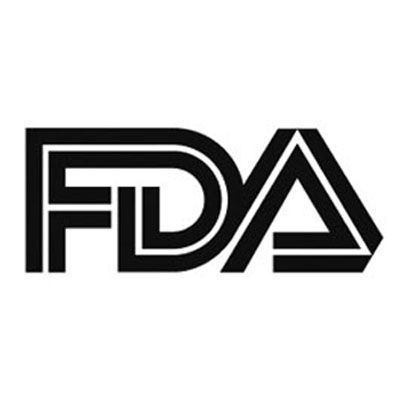FDA Grants Fast Track Designation to DT2216 for R/R PTCL, CTCL Treatment
FDA fast track designation has been granted to a novel agent, DT2216, for the treatment of patient with relapsed or refractory peripheral T-cell lymphoma and cutaneous T-cell lymphoma.

The FDA has granted fast track designation to DT2216 for the treatment of adult patients with relapsed or refractory peripheral T-cell lymphoma (PTCL) and cutaneous T-cell lymphoma (CTCL), according to an announcement by Dialectic Therapeutics, Inc.1
DT2216 is a BCL-XL specific degrader which, in preclinical studies, demonstrated selectively induces the degradation of B-cell lymphoma extra-large, or BCL-XL, in cancer cells. The agent can lead to cellular destruction by either stimulating the return of cellular apoptosis sensitizing the cells to be more susceptible to chemotherapy. DT2216 is currently under investigation in a phase1 clinical trial (NCT04886622).
"This is an important milestone in the development of DT2216, our lead APTaD™ compound. This, along with FDA's recent decision to grant orphan drug designation, underscores our belief that DT2216 could be a promising therapeutic for T-cell lymphoma patients" said Dr. David Genecov, Dialectic's president and chief executive officer, in a press release. "There is a critical unmet need for people diagnosed with this rare cancer, in which current approved therapies have relatively low response rates."
In the open-label, first-in-human, dose escalation study of DT2216 in patients with relapsed/refractory malignancies, the coprimary end points include the incidence of adverse events (AEs), the severity of AEs, and the number of patients with dose-limiting toxicity (DLT). The secondary end points of the study include the measurements of Cmax of DT2216 following intravenous (IV) administration, half-life of DT2216, clearance of DT2216, levels of BCL-XL in peripheral blood mononuclear cells, platelet counts following administration of DT2216, and the number of patients who have oncological responses to DT2216 based on the RECIST 1.1 criteria.2
The study is actively recruiting up to 24 patients to receive DT2216 in the study. To be eligible, patients aged 18 years or older are required to have a histologically or cytologically confirmed disease, evidence of disease progression or inadequate response on the last regimen as assessed by the investigator, and have exhausted all curative treatment options. At screening, patient must have an ECOG performance status of 0 or 1, adequate organ function, eft ventricular ejection fraction of ≥50%, adequate washout from prior to first dose of study therapy, and all prior AEs must be resolved to a grade 1 or lower.
Individuals previously treated with any BCL-XL directed therapy, organ transplantation including allogeneic or autologous stem-cell transplantation or other cellular therapies, major surgery < 4 weeks prior to first dose of study therapy, growth factor use < 4 weeks prior to first dose of study therapy, systemic steroid therapy or any other form of immunosuppressive therapy within 7 days prior to the first dose of study treatment, or an investigational product < 4 weeks prior to first dose of study therapy are excluded. Patients may also be ineligible for inclusion in the study if they have certain comorbidities that could interfere with the activity or safety of DT2216.
The Mary Crowley Cancer Research Center in Dallas, TX and the Mays Cancer Center in San Antonio, TX are actively recruiting patients who meet the eligibility requirements. Another study site, Northwestern University in Chicago, IL, is not recruiting.
REFERENCES:
1. Dialectic Therapeutics announces DT2216 has received fast track designation from the FDA for adult patients with relapsed or refractory peripheral and cutaneous t-cell lymphoma. https://prn.to/3O2PiGm
2. A study of DT2216 in relapsed/refractory malignancies. Clinicaltrials.gov. Updated October 12, 2021. Accessed April 6, 2022. https://bit.ly/3v27xmi
Examining the Non-Hodgkin Lymphoma Treatment Paradigm
July 15th 2022In season 3, episode 6 of Targeted Talks, Yazan Samhouri, MD, discusses the exciting new agents for the treatment of non-Hodgkin lymphoma, the clinical trials that support their use, and hopes for the future of treatment.
Listen
Later-Line CD19 and Bispecific Therapies Considered After CAR T
October 1st 2024During a Case-Based Roundtable® event, Christopher Maisel, MD, discussed third- and fourth-line therapy and barriers to bispecific therapy use in diffuse large B-cell lymphoma in the second article of a 2-part series.
Read More








